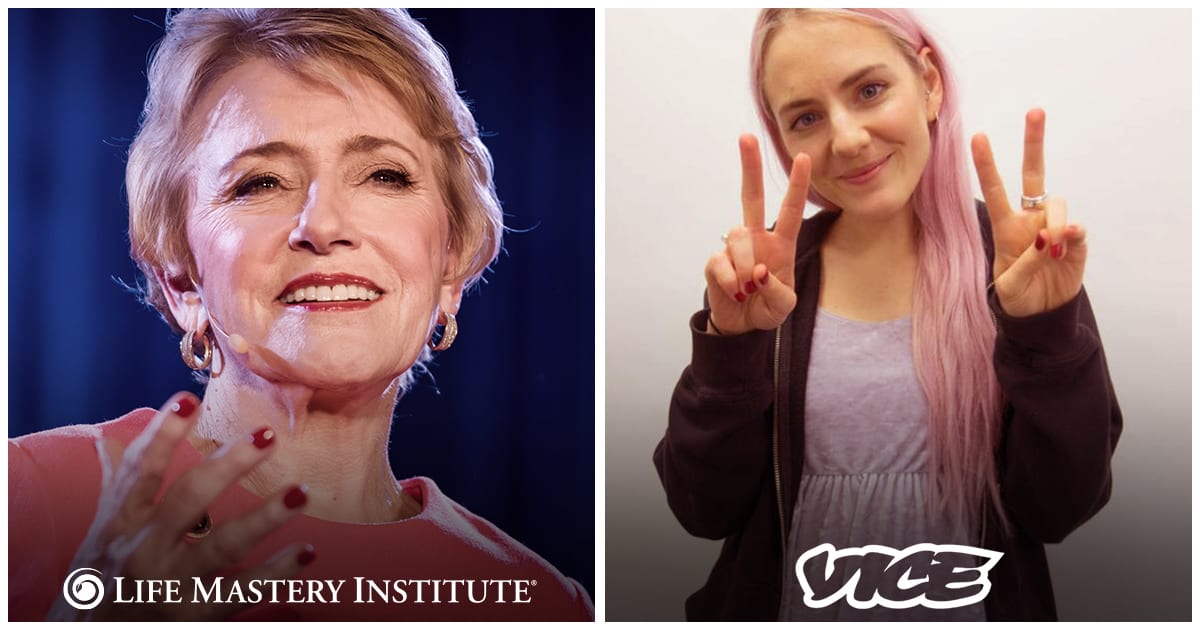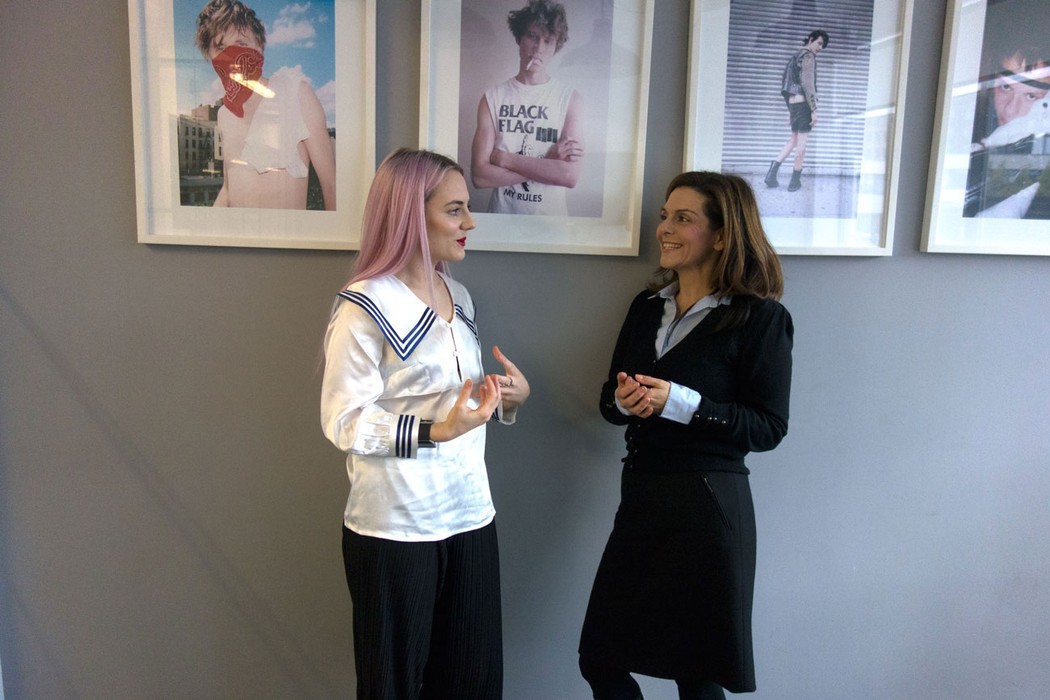
How to Become a Life Coach Worth Hiring: Insights From Aspiring and Experienced Life Coaches
I recently came across a Vice article called “Can A Life Coach Actually Make Your Life Better?” by Hannah Ewens, a young woman who, driven by the desire to “cash in” on the life-coaching industry, became a life coach in order to explore whether or not life coaching makes life better.
While author Hannah Ewens’ tone is often light-hearted and sometimes skeptical, her reflections on getting certified and on her first coaching sessions shed an interesting light on several very real truths and misconceptions about life-coaching.
So what’s the deal with life coaches?
Ewens learned how to become a life coach by attending a free, two-day certification program offered by the UK’s leading life coach training company and approached the experience with a doubtful, somewhat cynical mindset.
She explains, “Personally, I went in believing that [the] introduction to [how to become a] life coach would teach me nothing, serving only as a honeytrap to get suckers to fork out for the real £4,000 complete-at-your-own pace adult learning courses.”
However, by the end of the course, Ewen says, “I started to understand what I was actually learning to be,” and the process provided her the insight to address both some of the most common beliefs and misunderstandings about the personal development industry.
Below, I’d like to respond to some of the author’s points about life coaching discussed in the article.
Life Coaching is Not Therapy
I’ve discussed the key differences between therapy and life coaching before, but the article nicely addresses this divergence as well.
The author claims that during the training she was taught, “what life coaching isn’t about: severe depression, anxiety or serious relationship issues. This is where life coaching deviates from most types of therapy – we’re told to leave sadness at the door; this is just about self-improvement.”
This is mostly true—life coaching is not about curing mental illnesses or digging deeply into one’s past to explore the roots of trauma. Instead, it’s about focusing on the future, and helping clients take the steps to create a life they love living.
But I would like to note that a good life coach does not necessarily ask a client to “leave sadness at the door.”
Our emotions are real and should be acknowledged. I like to urge clients to, “notice what you are noticing,” so I believe recognizing your emotions and working through them—instead of simply ignoring them—is critical to personal development. Remember, what you resist, persists.
Life coaching can involve some intense confrontation with very real emotions, but that said, our aim as coaches is to help people believe they are more powerful than any circumstance they may face, and this mindset helps minimize worry and sadness over time.
Life Coaching Involves Shifting Patterns and Perceptions
Ewens discusses her post-certification visit with a long-time, successful life coach, Natalie Dee, who explains,
“I believe we’re limited by our own thinking, so even I have a life coach to stretch my thinking. For me it’s about asking questions. If we want to think differently, we need someone to break our own pattern of thinking. I’m not saying you couldn’t do that on your own – but when you work with someone you can do it quicker. It’s the job of the good coach to push a few buttons and be the catalyst for new thinking.”
This is precisely what life coaching is about: changing our paradigms and thought patterns in order to change our lives. A good life coach knows and teaches that how and what we think directly affects how we live, what we do, and what we have—bottom line.
A life coach’s job is to a help a client break free of old, limiting thought patterns and adopt new, expansive ones in order to achieve their greatest goals and dreams.
Life Coaching is Judgement-Free
In the certification process, Ewens learned that, “Simply put, a life coach helps a client reach their goals by questioning their thinking and helping to signpost without judgment…There is no room for judgment in coaching.”
This is absolutely true. As spiritual life coaches, we don’t attach judgment to things—a feeling, experience, or circumstance is neither good nor bad…it just IS.
What we teach clients is that while they may not be able to control every experience that happens to them, they can control how they react to these experiences.
Ewens admits in the article to struggling with not offering personal opinions or unsolicited advice, and boldly claims, “This is exactly why you shouldn’t coach people you’re close to – you’ll be too tempted to tell them what to do or be frustrated by their lack of effort.”
Ewens’ concern is understandable, but It really depends upon the individual relationship as to whether or not you choose to coach someone close to you.
If you do choose to coach someone close to you, it is extremely important to set up boundaries from the very beginning, and to learn how to wear two different hats – the “coach” hat and the “friend” hat.
Life Coaches Need Experience (And Personal Development Themselves!)
In the article, Ewens discusses feeling somewhat ineffectual with her first two clients, unsure how to steer the conversation after some initial progress. She consulted seasoned life coach Natalie Dee on how to become a life coach worth hiring, to which Dee responded:
“Just because you’ve been on a six month course, doesn’t mean you know what you’re doing…Would you want a doctor to work on you without seven years of training?…Absolutely not. I’m not saying you need seven years behind you to be a life coach, but you want someone with a bit of life experience. I’m a better coach now than I was 13 years ago – it’s experience.”

Via vice.com – Hannah Ewens and professional life coach Natalie Dee
Like everything, becoming a life coach is a process, a journey, and even the strongest new coaches need time and experience to become their best selves. That’s why Dee recommends life coaching even to life coaches, since we can all benefit from “stretching our own thinking!”
The Benefits to Learning How to Become a Life Coach
At the end of the article, Hannah Ewens marvels, “In the end, I would recommend [life coaching] to anyone who wants to be a better person,” a conclusion she was only able to come to after learning how to become a life coach herself.
Good life coaches know that the key to successful life coaching—for both the coach and the client—lies in changing your perceptions to change your results in life.
How to Become a Life Coach at Life Mastery Institute
Perhaps you’re considering becoming a life coach, and are wondering how to become a life coach yourself.
Check out my gift to you: a FREE online workshop on how to turn your passion for others into a thriving coaching business.
If you feel called to help others create lives they love living and want to welcome abundance into your own life while doing so, then sign up today!


